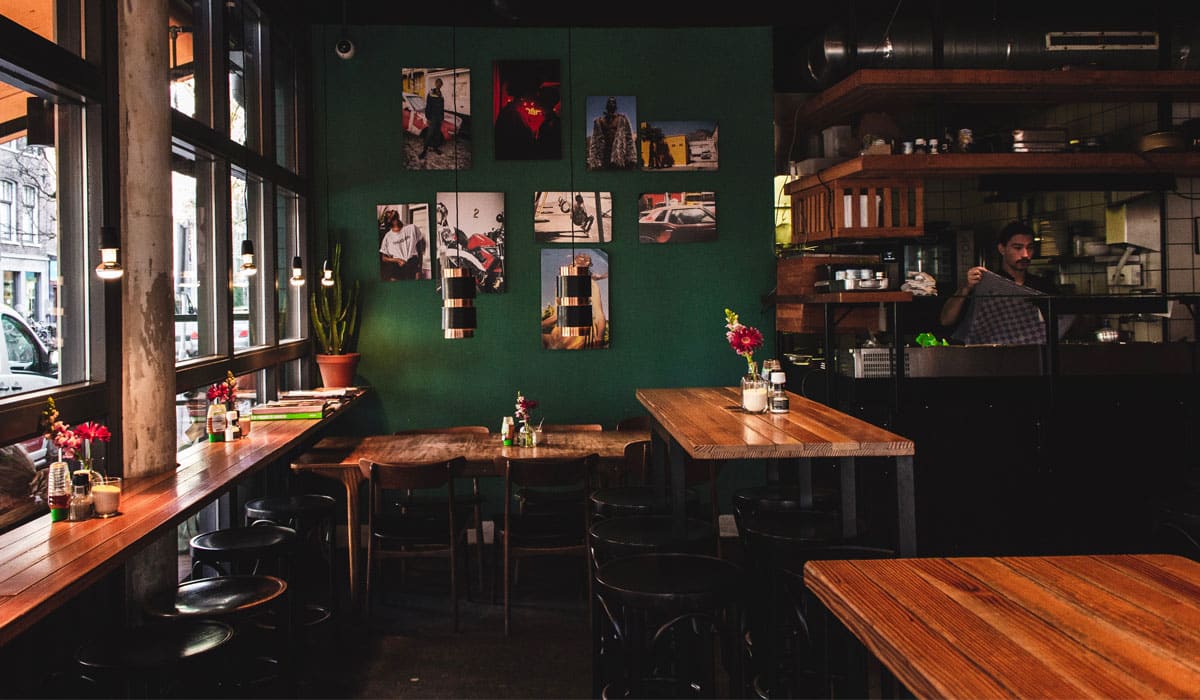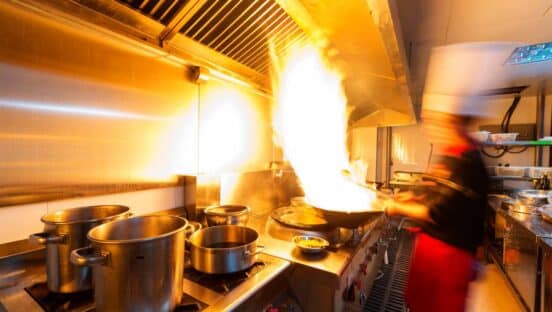In terms of how the coronavirus is ultimately going to affect U.S. restaurants, we simply don’t have enough information yet. But, for now, February provided a lull before the potential storm.
Restaurants posted their second consecutive month of positive same-store sales growth, although gains were undeniably modest, according to the latest report from Black Box Intelligence. Comps of 0.3 percent followed a 2.2 percent run in January, when restaurants enjoyed milder-than-usual weather.
Favorable temperatures aided February, too, Black Box said, only to a lesser extent. Broadly, the restaurant industry has achieved positive sales growth in five of the last six months.
Yet it wouldn’t be accurate to call this stretch a banner run exactly. “As encouraging as that sounds, restaurant sales are far from strong, which is not surprising for an industry that continues to struggle with declining guest counts,” Victor Fernandez, vice president of insights and knowledge for Black Box Intelligence, said in a statement.
READ MORE:
Here’s how your brand should prepare for the coronavirus
Why full-service restaurants are getting hit the hardest
Over that time period, same-store sales growth averaged 0.4 percent. If you remove January’s stellar performance, though—the best in four years—restaurants tracked flat, year-over-year. “Furthermore, same-store sales dropped by 0.2 percentage points during February compared with the same month two years ago,” Fernandez added. “This was only the second time in the last 12 months that two-year stacked growth was negative.”
The anvil sitting on sales progress remains a familiar one. Same-store traffic growth was negative 2 percent in February. While that appears promising at first glance, at least compared to recent results (all of 2019 posted negative 3.1 percent), February’s figure was mostly boosted by a weak 2018 lap of negative 3.7 percent.
There’s also evidence to suggest the arrow is headed in the wrong direction. That’s a twofold reality. One, the positive effect of favorable weather is about to get cooked by the arrival of spring. You can see this unfolding already. Seven of the 11 regions tracked by Black Box reached positive same-store sales in February. Like January, the regions where restaurant sales are typically hit hardest by Mother Nature’s wrath are among those with strong February gains. The Midwest, New York-New Jersey, New England, Mid-Atlantic, and Mountain Plains all posted comps better than 1.5 percent.
Clearly, a mild winter continues to be a tailwind for restaurant sales. While those aforementioned regions posted sales growth around 4 percent in January, each declined in February.
And now, we have the coronavirus to consider. McDonald’s announced recently it canceled its worldwide convention in Orlando, Florida, electing instead for a digital meeting. South by Southwest, one of the country’s highest-profile events with attendance north of 150,000 people, also shut down and laid off a third of its staff.
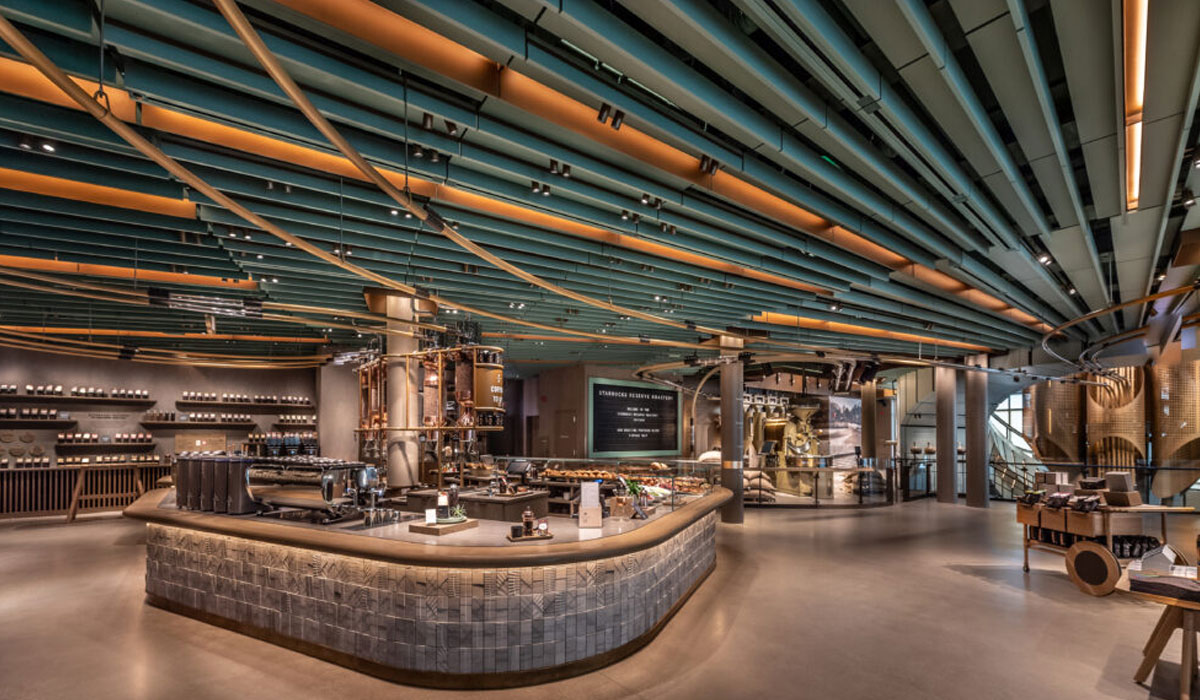
These cancellations, especially at smaller scale, will dampen catering. As will offices asking employees to work from home. There’s also the effect on business dining to mull over. According to Dinova, it’s a $77 billion industry in the U.S., where more than 20 percent of diners report average checks of $61-plus when dining on the company’s dime.
Additionally, this doesn’t factor in the likelihood people will decide to batten down the hatches and stay at home (self-quarantines). The effect will be more pronounced in large gathering areas, like food courts, food halls, and crowded restaurant spaces that pack people in.
What this could do to employees is a different issue altogether as well. Darden announced this week it was now providing paid sick leave to hourly employees. The COVID-19 outbreak accelerated a program, Darden said, that been in talks for a while. Current workers will gain one hour of paid sick leave for every 30 hours worked, starting with the past 26 weeks. New employees can build sick leave as soon as they start, but cannot use the benefit until after 90 days of employment. The pay rate is based on the employee’s 13-week average.
McDonald’s also said Tuesday that it will pay hourly employees at company-owned units who have to quarantine for 14 days. That does not include franchises, which accounts for 95 percent of stores in the U.S. The chain said many of its locations have policies in place to offer paid leave. Corporate store employees earn up to five days of paid time off each year.
Darden and McDonald’s moves aside, data shows only 25 percent of workers in the industry have paid sick leave. That means scores of employees who potentially contract the virus might need to look for other work to pay the bills, leading to increased turnover in an industry already plagued by triple-digit figures. On the back end, operators’ struggles to fully staff units—a significant hurdle already—will only heighten.
Closures might play a role, too. A Starbucks in downtown Seattle shuttered recently after an employee tested positive. The World-Herald in Omaha, Nebraska, reported that Council Bluffs’ first confirmed case was a restaurant worker, from Panera Bread. The restaurant closed for a deep cleaning, which took a few days.
To put in plainly, there are simply a lot of factors and unknowns, and you’re seeing that uncertainty drag public restaurant stocks in recent days. And it’s not going to ease in coming weeks.
Black Box said March could prove tough for restaurant employees in particular, especially if traffic experiences a bigger hit due to fears of the coronavirus. This isn’t welcomed news considering rolling 12-month turnover increased in January for both non-management and restaurant positions yet again.
The labor issue: Black Box’s Workforce Index reported in Q4 2019 that 38 percent of brands witnessed an increased in the number of their unfilled restaurant hourly positions; 30 percent said the same of management roles.
A need for employees continues to increase for restaurants relative to the rest of the economy. Per the Bureau of Labor Statistics, employment in foodservice and drinking places has grown by an average of 2.4 percent, year-over-year, for the each of the last five years. The overall employment growth in the economy during the same period has been only 1.7 percent per year.
“That is the net growth in employees in the industry, but of course staffing difficulties include the replacement of all those employees that are quitting their current restaurant jobs,” Black Box said.
Turnover rates remain at historic highs. As a result, the number of unfilled positions in restaurants continues to challenge operators.
Black Box’s Workforce Index reported in Q4 2019 that 38 percent of brands witnessed an increased in the number of their unfilled restaurant hourly positions; 30 percent said the same of management roles.
Another way to look at the vital nature of this is by examining how labor separates the top- and bottom-tier performers. Black Box’s research shows that brands consistently able to grow their guest counts over the last two years have received better service scores in guest ratings and excel in providing a superior overall dining experience. That includes higher ambiance guest sentiment. “Although strong positive to-go same-store sales growth is relatively widespread in the industry right now, those brands growing their traffic are outperforming not only in the dine-in category but also growing their to-go sales at a much faster pace,” Black Box said.
Turnover rates are linked to sales and traffic. In January, Black Box noted that restaurants in the top 25 percent of same-store sales growth had a service net sentiment 17.4 percentage points more positive than those in the bottom 25 percent of sales growth. In the fourth quarter of 2019, those brands in the top quartile reported management turnover rates, on average, 7.7 percentage points lower than those restaurants with the worst sales growth.
The industry’s 2019 top-quartile gap in comp sales versus the bottom quartile was 8.1 percent in sales and 8 percent in traffic.
Simply, although it’s going to become even harder to staff restaurants, the need to do so, or have platforms in place to streamline operations, isn’t going to lose importance.
Where we’re headed, and the coronavirus concerns deepen
As of today, the economic outlook for spring and summer is flat, or even possibly negative, due to rising coronavirus fears as well as political uncertainty. The first quarter of 2020 should prove positive thanks to the weather impact. But March, as noted, is where Black Box expects the sentiment to turn. For starters, there’s 2018’s tough 1.2 percent growth to compare against.
To put this in perspective, February’s sales growth in 2019 was negative 0.6 percent and yet the industry was still only able to post a small positive increase last month.
“On the other hand, as news of more cases of coronavirus become more prevalent and continue to be shared, some negative effect on restaurant sales becomes unavoidable,” Black Box said. ”We are already hearing from major corporate gatherings being cancelled due to illness-related fears. Those markets typically labeled as travel destinations, be it for spring break vacations or for corporate events, will probably be hit first as traveling winds down as a precaution. Just how big an impact this will have, it is too early to tell.”
“When it comes to the economy, it is all about the coronavirus, so the past may not be prologue,” added Joel Naroff, president of Naroff Economic Advisors and Black Box Intelligence economist, in a statement. “That is especially true since growth remained decent through February. The data have yet to show any ill effects of the virus, despite the quarantines in China and the signs of it spreading to other parts of the world. That is not a surprise, as the numbers were not expected to reflect the impact until spring and summer. Given that a vaccine could be a year out, it has to be assumed the coronavirus will spread across the United States. The key issue will be the fear factor it triggers. Not only will people shy away from any activity where there are groups, but frightened populations demand drastic action. That would exacerbate the slowdown.
“Currently, it looks like the spring and summer quarters will be largely flat or even negative. “Recession estimates are in the 60 percent probability range. The restaurant industry would be hit not only by the economic slowdown but also the fear of congregating with others. The only good news is that once the virus is contained, people should go back to living normal lives quickly and the recovery could be rapid and strong.”
Coronavirus effects to watch for
One element to keep an eye on is delivery. It seems undeniable that off-premises business will hike as coronavirus cases surge. According to recent data from YouGov shared with QSR, among those concerned about the virus, the percentage of those considering Uber Eats went from 14 percent on February 5 to 21 percent on March 3 (based on a two-week moving average).
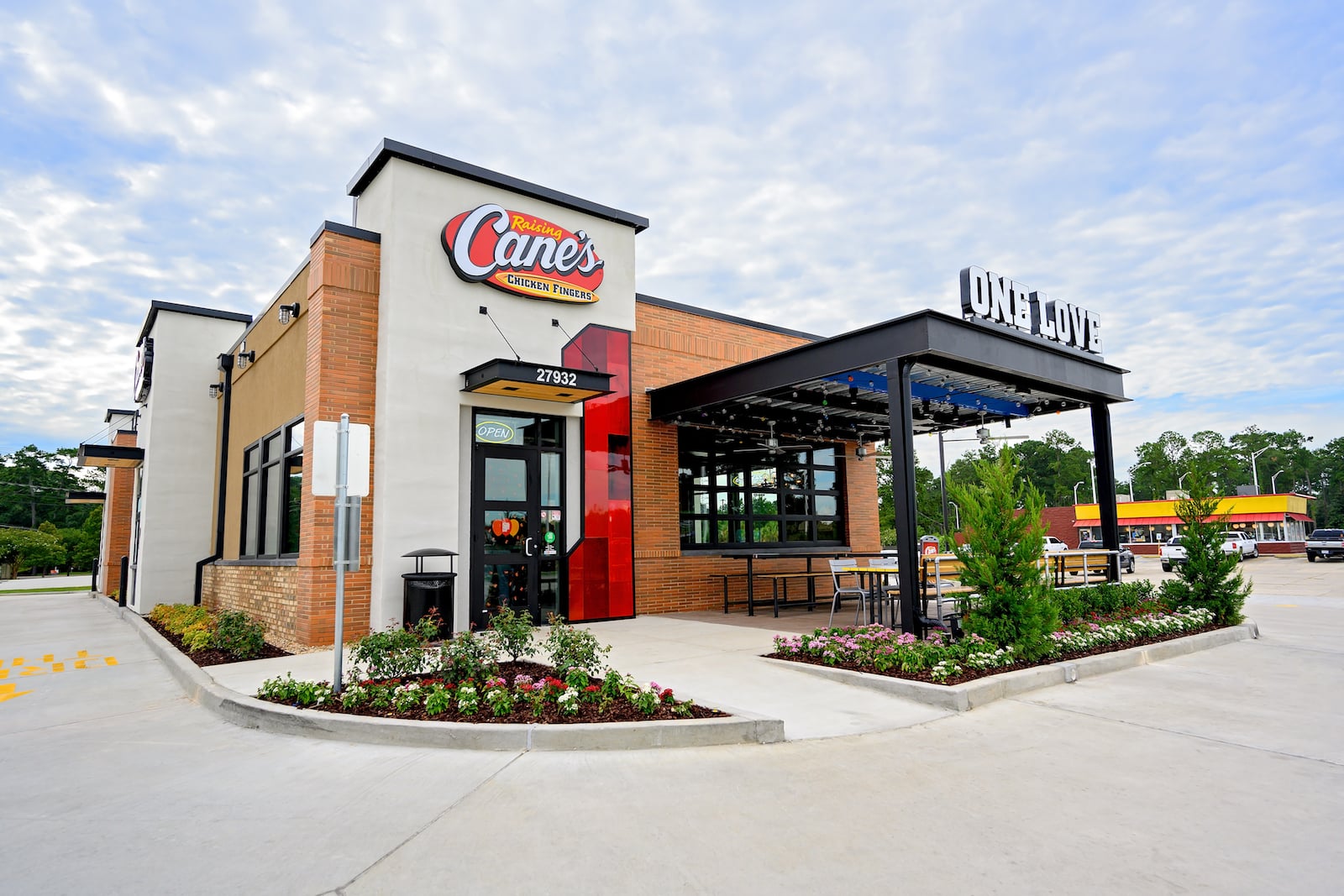
The virus has led McDonald’s and Starbucks to broaden their use of contactless delivery in China. Postmates recently introduced no-contact delivery app options across its 4,200-city network called “Dropoff Options.” When customers order they now see three categories—delivery to the door, leave it at the door, or meet the customer outside.
Per Reuters, DoorDash is also testing enhanced drop-off options for contactless delivery “to be rolled out shortly,” and is reminding consumers they can leave instructions for drivers in the app, including a photo of where to put the food.
Then there’s the impact being felt by Chinese and Italian restaurants. According to Google Trends data, both have seen a decline in interest over the last month, as noted in an article by Chef’s Pencil.
The publication, comparing Google Trends data last week with the average for January before the coronavirus outbreak, said there was a steep worldwide drop in interest for Chinese food (33 percent). In the U.S., the number fell 17 percent. There are some 45,000 Chinese restaurants across the country generating $20 billion in annual sales, Chef’s Pencil said.
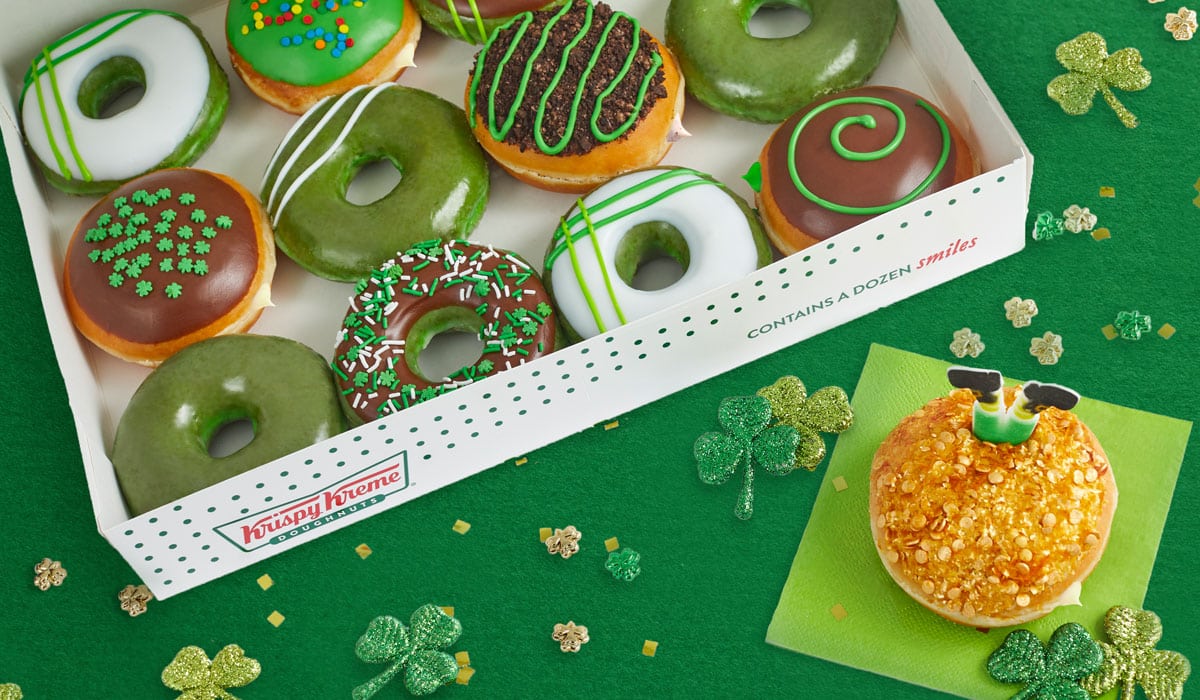
Interest in Italian food plunged 24 percent as the coronavirus took hold in Italy. Stateside, the dip was 13 percent.

Why is this happening? Chef’s Pencil suggests it could stem from the fear that restaurant employees visited their homeland and brought the virus back. Or maybe the food. Perhaps it’s something less material, like xenophobia and racism.
Either way, the restaurant world is bracing for impact across the spectrum. Where and for how long, however, is something that’s still unfolding.

